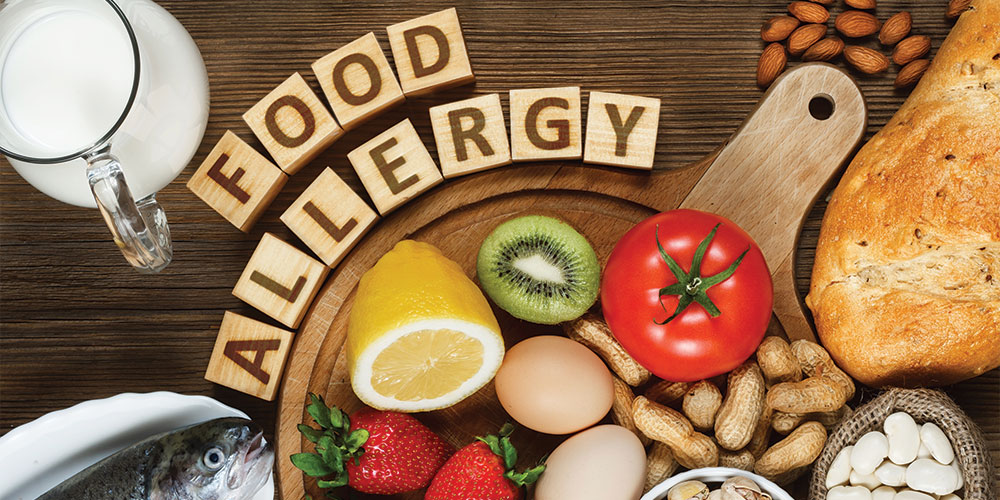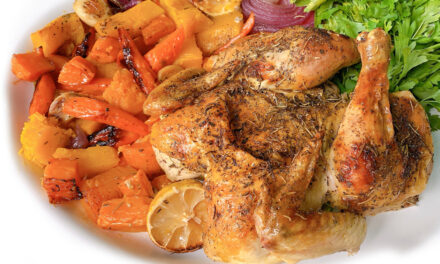Food Allergy Awareness Week (May 8-14, 2022) is an opportunity to help raise awareness of food allergies and anaphylaxis. Milk, egg, peanut, soy, wheat, tree nut, shellfish, fish, and sesame are the nine most common allergens which affect roughly 32 million Americans. Those affected are required to vigilantly read labels, speak to restaurant employees, communicate with event hosts, and take other careful precautions to avoid a potentially life-threatening response known as anaphylaxis. For some individuals, only a trace amount of the allergen is required to trigger such an allergic reaction.
With summer social events on the horizon, here are five tips to support and protect those affected by food allergies:.
TIP #1: Before hosting an event, ask your guests to share any food intolerances or allergies they may have.
Though food allergies and intolerances are different, both can cause great discomfort when consumed. Food allergies are a reaction to the protein in food and trigger an immune response by producing an antibody (IgE) when a food allergen is detected. After histamine and other chemicals are released, symptoms begin to appear which can be life-threatening. On the other hand, food intolerances do not involve the immune system, so they are not life-threatening. Checking in with guests before an event not only prevents adverse reactions to food but also helps the individual feel welcomed and safe when eating.
TIP #2: If a dish contains one of the nine common food allergens, label it clearly.
Spring and summer offer a fun environment for backyard BBQs, neighborhood potlucks, and picnics in the park. In an effort to protect those with food allergies, consider labeling dishes that contain one or more of the top nine food allergens. For example, if your potato salad is made with milk, make it known! This can be especially helpful in larger gatherings.
TIP #3: Avoid cross-contact.
For people with severe food allergies, even a speck of the allergen can trigger a lifethreatening response. When preparing food, be conscious not to use the same bowl, utensil, or serving platter for multiple recipes before thoroughly washing with soap and water. Also, don’t forget to wash your hands! Just like utensils, food allergens can hang on to the skin and easily be transported without thorough handwashing.
TIP #4: Pack patience and compassion when traveling with someone living with a food allergy.
Though it may seem time-consuming or inconvenient, individuals with certain food allergies may need to contact restaurants to ensure they have menu items/kitchen capability to cater to specific allergies. A short phone call or conversation with a restaurant manager could save a life! People with food allergies can often feel isolated, but taking small measures to ensure safety when traveling and dining makes a big difference in helping these individuals feel included in the group.
TIP #5: Read labels and look for clues!
Some packaged items in the grocery store may have cross-contact with one or more of the common food allergens. With the exception of sesame, which is not yet officially acknowledged as a top allergen, manufacturers are required to note this possibility on the label. Look for phrases like “may contain wheat” or “processed in a facility that also processes tree nuts” and consider purchasing items that are food allergy-friendly instead.
Want more information or tools to learn about, love, and connect with those with food allergies?
- Check out FARE.com an organization that supports research, education, and advocacy.
- For local resources and connection with food allergy families, consider joining the Food Allergy Alliance of the Mid-South at FAAMidsouth.org.
- If you or a loved one has questions or concerns about navigating food allergies, reach out to Memphis Nutrition Group for additional help and support.
Jennifer Bookout RDN, LDN is a nutrition therapist at Memphis Nutrition Group, a nutrition and lifestyle counseling practice offering in-person and virtual nutrition therapy specializing in a non-diet, weight-neutral approach. Contact Memphis Nutrition Group at 901.343.6146 or visit MemphisNutritionGroup.com for more information.
By Jennifer Bookout RDN, LDN







